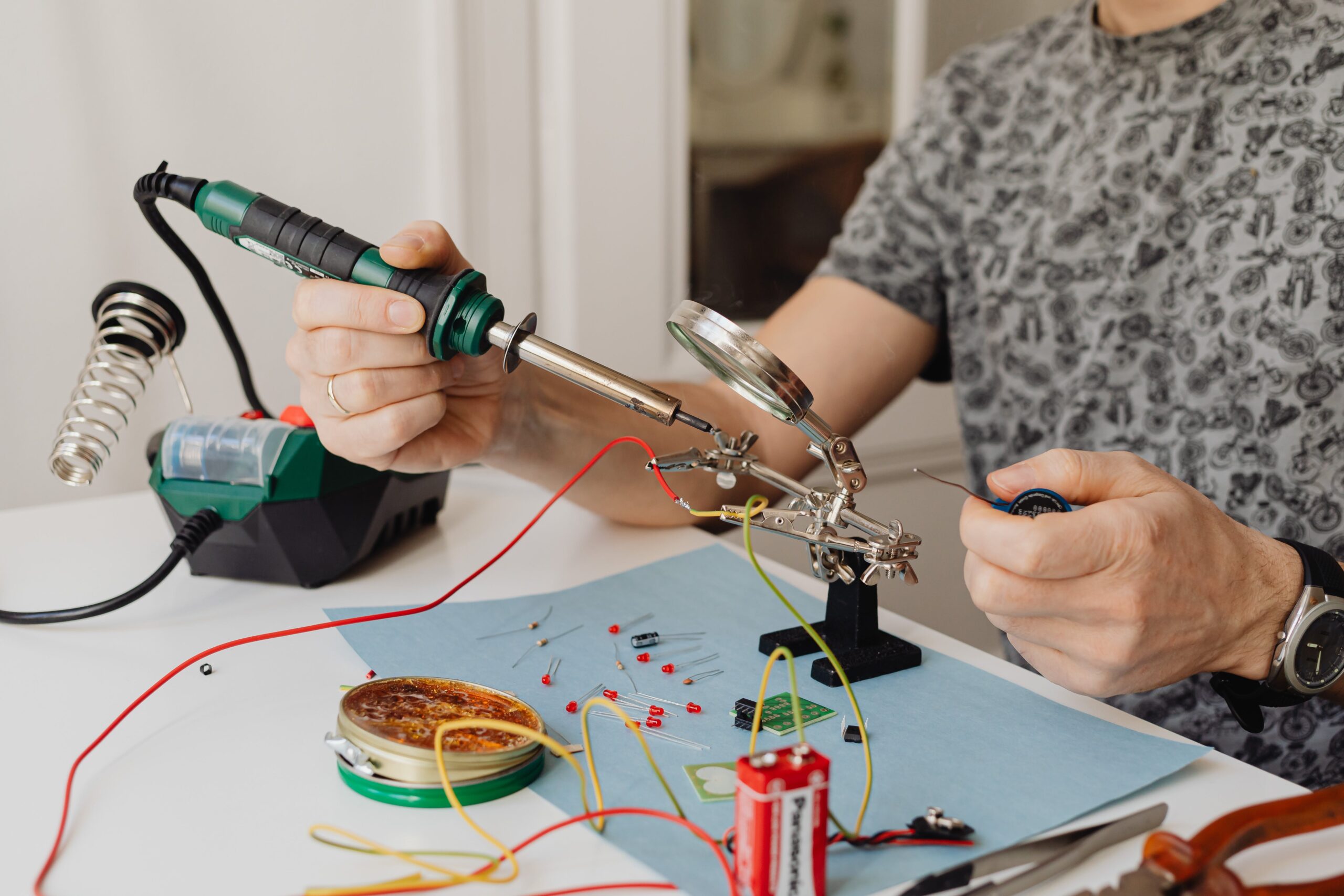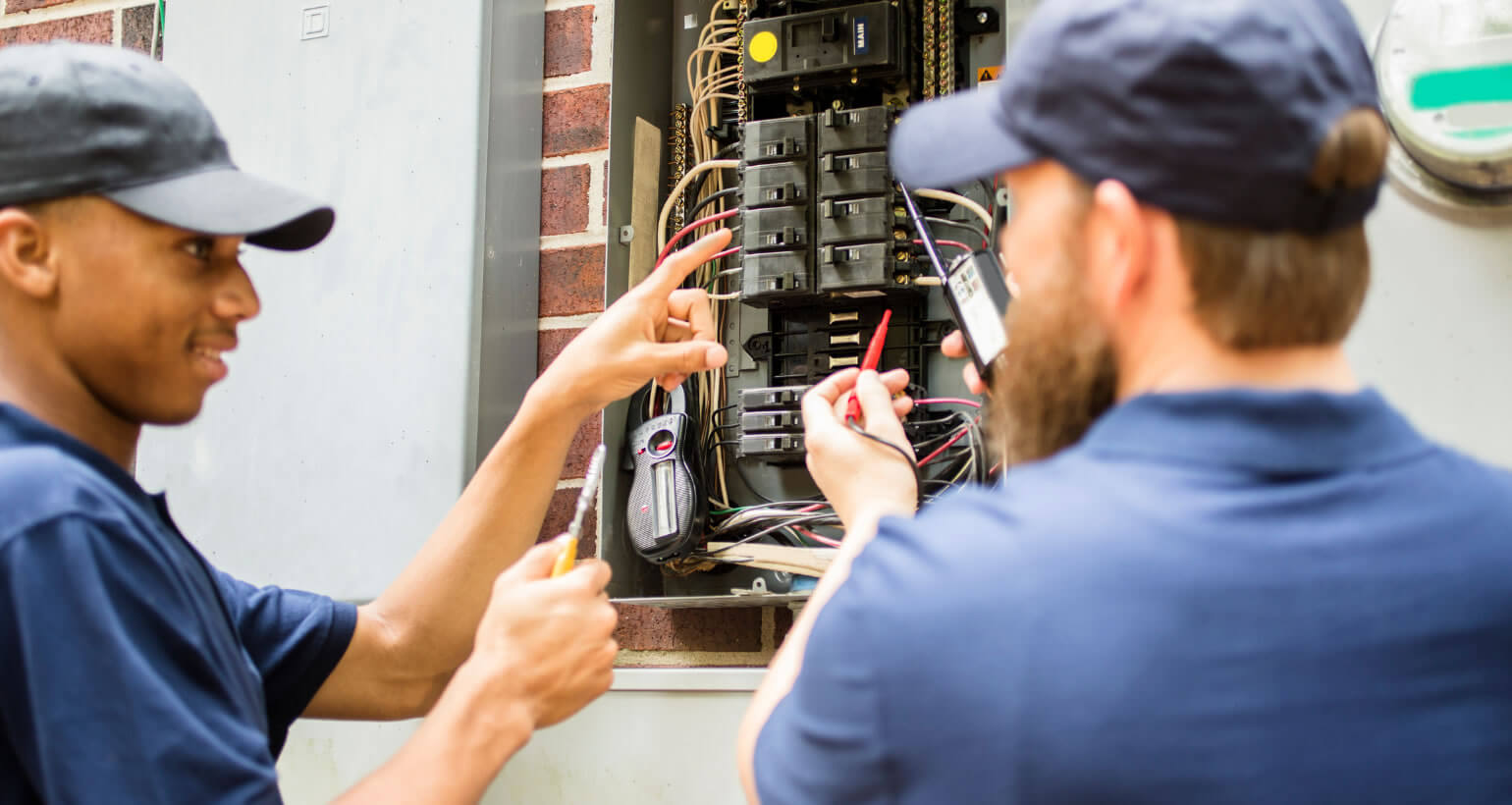Embarking on a career as an electrician can be both exciting and rewarding. Electricians are essential in our modern world, responsible for installing, maintaining, and repairing electrical systems in homes, businesses, and industries. If you’re considering this path, one of the best ways to start is through an electrician apprenticeship. This blog post will guide you through the steps to begin your apprenticeship journey.
Want to Learn More About Your Registered Apprenticeship Opportunities?
BOOK A FREE CONSULTATION
Understanding the Prerequisites in Detail
Before you embark on your journey to becoming an electrician through a registered apprenticeship, it’s crucial to understand and meet the necessary prerequisites. These requirements are not just formalities; they ensure that you are prepared for the demands and responsibilities of the apprenticeship. Let’s delve into each prerequisite in more detail:
- Age Requirement (At Least 18 Years Old): Most apprenticeship programs require candidates to be at least 18 years old. This age requirement aligns with legal employment standards and ensures that apprentices are mature enough to handle the responsibilities and safety requirements of the job.
- Educational Background (High School Diploma or GED): A high school diploma or GED is typically required. This educational foundation is important because the apprenticeship will involve technical concepts and calculations. Courses in mathematics, particularly algebra and geometry, are extremely beneficial. If you have taken any vocational courses in electrical systems or related fields, these can strengthen your application.
- Drug Testing (Pass a Drug Test): Due to the high-risk nature of electrical work, apprenticeship programs often require candidates to pass a drug test. This is a safety measure, ensuring that apprentices can perform their duties reliably and safely, without the impairment of substances.
- Valid Driver’s License: Having a valid driver’s license is usually a requirement because an apprentice might need to travel to various job sites. This mobility is crucial, especially in areas where public transportation is not readily available or when job sites are spread out.
- Physical Fitness: Electrical work can be physically demanding. You may need to climb ladders, lift heavy equipment, and work in various physical positions. Therefore, a certain level of physical fitness is often required. While a formal fitness test may not be a prerequisite, being in good physical condition will certainly help in performing the job effectively.
- Basic Understanding of Electrical Concepts: While not always a formal requirement, having a basic understanding of electrical concepts can be a significant advantage. This can come from high school courses, vocational training, or even self-study.
- Communication Skills: Good communication skills are essential for understanding instructions, learning from supervisors, and eventually interacting with clients and colleagues. While this is not a formal prerequisite, demonstrating these skills during the application process can be beneficial.
- Commitment and Motivation: Finally, a strong sense of commitment and motivation is crucial. Apprenticeships can be demanding, and showing that you are dedicated and eager to learn will set you up for success.
Finding Electrician Apprenticeship Opportunities
Finding the right apprenticeship is a crucial step. Here’s how you can start:
- Contact Local Electrician Unions: Many unions offer apprenticeship programs. They provide structured training and are a great way to network.
- Check with Electrical Contractors: Some contractors offer apprenticeships or can guide you to local opportunities.
- Vocational Schools and Technical Colleges: These institutions often have connections with apprenticeship programs.
- Online Job Boards and Websites: Websites like Indeed, Glassdoor, or specialized trade sites can have listings for apprenticeships.
- Apprenticeship Tracking Software: GoSprout manages the apprenticeship process for both apprentices and employers.

Preparing for the Application Process
Once you find an opportunity, the next step is to prepare for the application process:
- Gather Essential Documents: This includes your resume, educational certificates, and any other relevant certifications.
- Prepare for Aptitude Tests: Some programs require tests that assess your math and reading skills.
- Work on Your Interview Skills: Being able to effectively communicate your interest and commitment is key.
- Get Some Basic Tools: Familiarizing yourself with basic electrician tools can be advantageous.
What to Expect During the Apprenticeship: A Detailed Overview
Embarking on an electrician apprenticeship is a journey of professional growth and skill development. It’s a comprehensive blend of practical training and academic learning. Here’s a detailed look at what you can expect during your apprenticeship:
- Duration and Structure: Typically, an electrician apprenticeship lasts between 4 to 5 years. This period is structured to provide a balanced mix of on-the-job training and classroom instruction. The exact duration can vary depending on the program’s requirements and your pace of learning.
- On-the-Job Training: This is the core of your apprenticeship. You’ll work under the supervision of licensed electricians on actual job sites. This hands-on experience is invaluable and will cover various aspects of electrical work, including installation, maintenance, and repair of electrical systems. Expect to start with basic tasks and gradually take on more complex responsibilities as you gain experience.
- Classroom Instruction: Alongside practical training, you’ll attend classes. These are typically held at a vocational school or training center and may be scheduled during evenings or weekends to accommodate work commitments. Coursework includes electrical theory, safety practices, code requirements, blueprint reading, and mathematics relevant to the field. This theoretical knowledge is crucial for understanding the principles behind the work you do on-site.
- Safety Training: Safety is paramount in electrical work. You’ll receive extensive training on safety practices, including how to handle tools and equipment safely, understanding and complying with OSHA regulations, and first aid and CPR training. This aspect of your apprenticeship is critical to ensuring your safety and that of others on the job.
- Earning and Advancement: As an apprentice, you’ll earn a wage, which is a percentage of what a fully licensed electrician earns. This wage typically increases incrementally as you progress through your apprenticeship and gain more skills and experience.
- Examinations and Assessments: Throughout your apprenticeship, you’ll undergo various assessments to evaluate your knowledge and skills. These may include written tests, practical exams, and evaluations of your work on job sites. Successfully passing these assessments is essential for advancing through the program.
- Licensure Preparation: One of the ultimate goals of an apprenticeship is to prepare you for licensure as a professional electrician. The program will guide you through the requirements for taking the licensing exam, which typically includes a combination of written and practical components.
- Mentorship and Networking: During your apprenticeship, you’ll have the opportunity to learn from experienced electricians and build professional relationships. This mentorship is invaluable for gaining insights into the trade and establishing connections that can be beneficial for your future career.
- Adaptability and Continuous Learning: The field of electrical work is always evolving with new technologies and regulations. Expect to continuously learn and adapt throughout your apprenticeship. This adaptability is a key component of your professional development as an electrician.
Conclusion
Starting an electrician apprenticeship is a significant step towards a fulfilling career. It requires dedication, hard work, and a willingness to learn. By understanding the prerequisites, finding the right opportunity, preparing thoroughly for the application, and knowing what to expect, you can set yourself up for success in this dynamic field. Remember, the journey of a thousand miles begins with a single step, and your apprenticeship is that first step towards becoming a skilled electrician.
Further Reading: The Future of Work: Integrating Technology in Electrician Apprenticeship Programs















